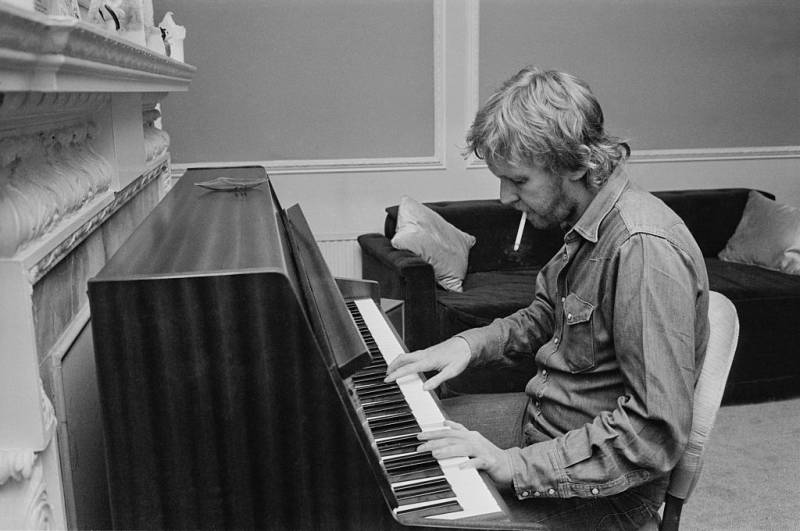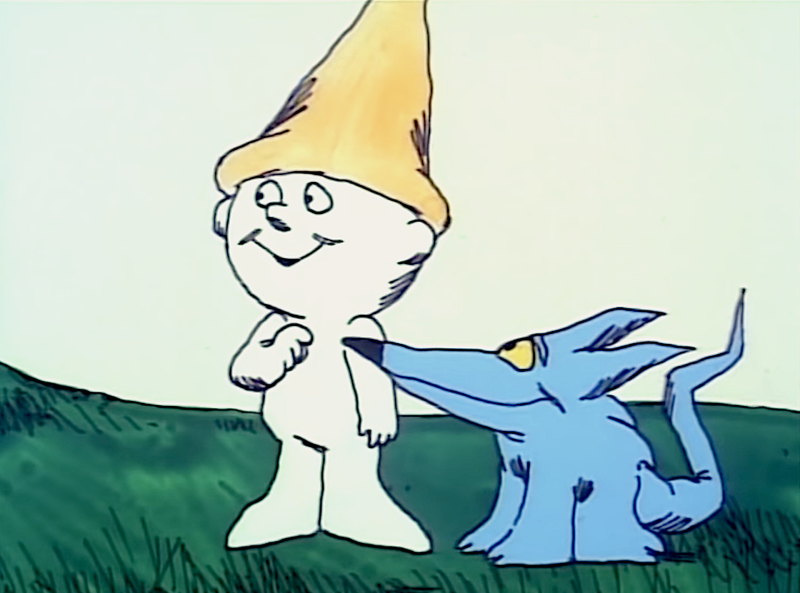This week, as we near the end of 2022, the writers and editors of KQED Arts & Culture are reflecting on One Beautiful Thing from the year. Here, in a very discouraging year for human rights and freedom of expression, editor Emma Silvers finds solace and hope in a Nixon-era TV special.
I’ve always been skeptical of people who boast about their children’s taste in music. At best, it comes off like a stretch of the truth. (“Oh, your kindergartener likes Led Zeppelin? My 18-month-old’s first words were Sigur Rós, in a perfect Icelandic accent!”) At worst, there’s an icky, narcissistic undercurrent to it — a view of child-as-accessory — like we’re keeping score in some kind of demented Pitchfork “Best New Kid” competition.
 And yet. My reading of this tendency changed when I actually had a baby, and came to understand one reason people get legitimately excited about their kids liking good stuff: because the vast majority of children’s entertainment makes parents want to stab themselves in the ears with a screwdriver. And whatever your child likes, you, as a parent, are going to wind up watching or listening to it over and over again.
And yet. My reading of this tendency changed when I actually had a baby, and came to understand one reason people get legitimately excited about their kids liking good stuff: because the vast majority of children’s entertainment makes parents want to stab themselves in the ears with a screwdriver. And whatever your child likes, you, as a parent, are going to wind up watching or listening to it over and over again.
Enter The Point!.
For the uninitiated, The Point! refers to both the dreamy 1970 concept album by singer-songwriter Harry Nilsson and its accompanying animated film (narrated by Dustin Hoffman, Ringo Starr or Alan Thicke, depending on which version your parents taped off TV). A classic hero’s journey, it tells the tale of a boy named Oblio who’s born “different” from everyone else, and he and his dog Arrow get cast out for it. In the so-called Pointless Forest, Oblio comes to understand the beauty in differences, then returns home to help everyone around him learn that lesson too. Along the way there’s an evil count, a doofy king, a giant pterodactyl and a jazzcat-riffing, Buddhist wisdom-dispensing pile of rocks.
For a Nixon-era primetime network TV special — it was a 1971 ABC Movie of the Week — it’s an exceptionally beautiful, quietly anti-authoritarian and 100% LSD-influenced work of art.

I didn’t put too much thought into it when I first showed Miles The Point! (though I knew that it wasn’t Cars again, nor, god forbid, Cars 2). I’ve always loved Nilsson’s music, and I was pleased to see that the 50-year-old, hand-drawn animation held my 3-year-old’s attention just as well as the frenetic, computer-generated kids’ shows that currently populate any streaming service. What I did not expect, until he began to request it — repeatedly — is the catharsis it would provide over the course of a strange and at times infuriating year.
But there it was, on in the car, in the living room; too weird to be a lullaby, too soothing to be anything else; an IV drip insisting on the existence of meaning, even on the days it was really hard to find. Warmly but firmly, it kept my nihilism in check: After Gift of Gab died, I listened to “Blazing Arrow” (built around a buoyant sample of Nilsson’s “Me and My Arrow”) and marveled at the beauty of two very different lyricists leaving behind such a wildly creative conversation. The week Roe v. Wade was overturned, and I became an expert at crying in efficient spurts before getting back to the task at hand, Nilsson’s “Think About Your Troubles” got me to see teardrops in a sort of pretty, conceptual way, reminded me they were normal and necessary. It helped to zoom out, even just momentarily, and think about cycles: of water systems, of sorrow, of history.
Miles sings this song to himself in the bath these days (“think about the bubbles!”), and no matter what else I am currently screwing up on as a parent, it makes me feel like I’ve done one thing right.
Lately, I find myself thinking about The Point! when politicians say dangerous, moronic things about queer youth: I think of the old, evil count who’s terrified of change and of losing power, and the complacent king who tries to keep to the letter of law regardless of the necessary shift happening before his eyes.
At the end of the story, Oblio helps the townspeople realize that rote conformity shouldn’t be the goal; that everyone has value and deserves respect; that empathy, exploration and new perspectives all matter. He and Arrow are welcomed home, the crowd cheers and that’s pretty much it.
Life isn’t that simple, of course. But the old, evil counts are real, and it is true that they cannot keep their vise grip on the rest of us forever. The kids of our world have seen the cracks in the old order, and they’re building a new one — they will tell you about what matters there if you’re willing to listen.
I guess I’ve come to accept my role as a mostly useless townsperson in this analogy. But when I’m in the car, singing along with a preschooler to a half-century-old album that feels relevant as ever, I briefly have enough faith in humanity to want to grab a hammer too.



